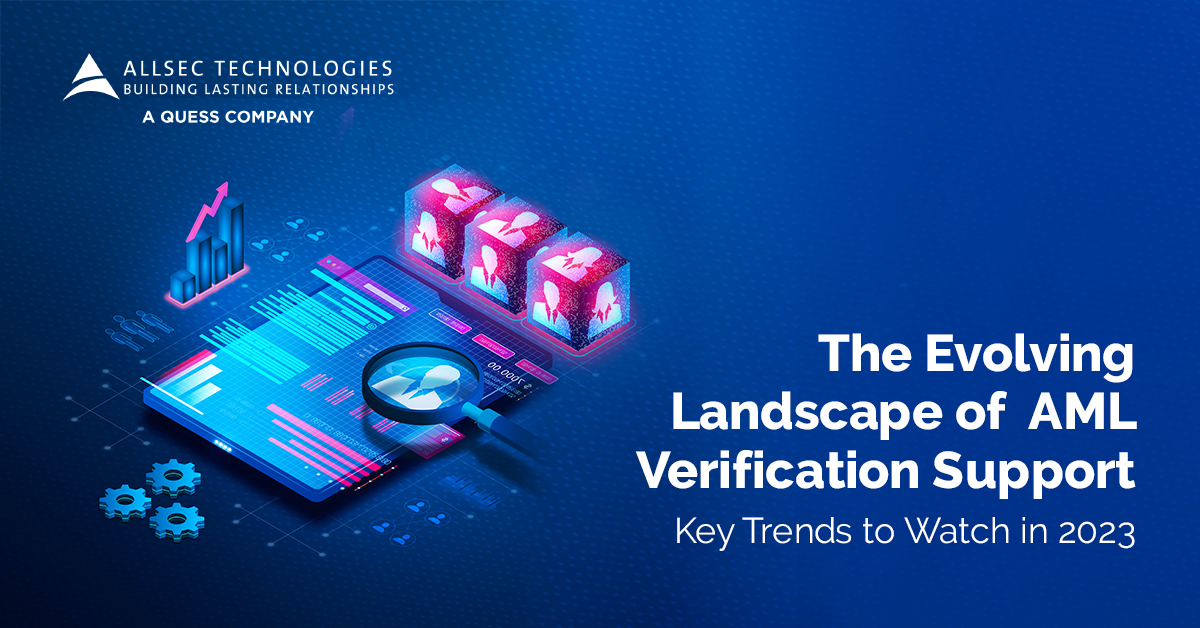
Anti-Money Laundering (AML) verification support services refer to the procedures, systems, and technologies employed by financial institutions and other businesses to ensure compliance with AML regulations. These services help organizations prevent money laundering and other financial crimes by verifying the identity of their customers and detecting suspicious transactions. Based on the current advancements in the Anti-Money Laundering (AML) and Know Your Customer (KYC) policies across industries, here are some potential trends we might see in AML verification support services in 2023:
Global Standardization
The increase in cross-border transactions has given rise to the need for international compliance. Thus, we anticipate an increased focus on standardization in AML verification support services like adopting global standards for identity verification, data privacy, and risk management.
Enhanced Data Security
Given the recent high-profile data breaches at companies like Google Fi, T-Mobile, and MailChimp, data security and privacy are expected to receive increased attention in 2023. Measures such as implementing secure data storage and transmission protocols, enhancing encryption, and adopting decentralized storage systems can help improve data security. Compliance with GDPR, the EU regulation designed to protect personal data, is also becoming increasingly important, and at Allsec, we continue to prioritize GDPR compliance in order to protect customers’ data and privacy.
Customizable Solutions for Competitive Industry
To remain competitive in the AML verification industry, it’s crucial to provide clients with customized solutions that cater to their unique needs. The development of modular AML verification platforms that can be customized and configured to meet the specific requirements of different organizations is likely to be one of the leading trends to expect this year. At Allsec, we understand the importance of tailored solutions, and our team is equipped with an array of tools to create the ideal solution for each client. Moreover, we prioritize ongoing training and development for our resources, ensuring our team is flexible and scalable to handle any volume of operations.
Heightened Stress on Real-Time Monitoring
Real-time monitoring of transactions is becoming increasingly important for detecting suspicious activity quickly. In 2023, we expect to see more AML verification support services that offer real-time monitoring of transactions, using machine learning algorithms to detect anomalies and flag potential fraud.
Superior User Experience
AML verification support services are often associated with a complex and time-consuming verification process, which can be frustrating for users. In 2023, the emphasis will shift towards improving user experiences through the development of streamlined verification processes, user-friendly interfaces, and better customer support.
Enhanced Transparency
AML verification service providers and their clients will see a greater need for process transparency and open communication in the financial industry as a growing trend. This includes providing information on policies and procedures, accessible to customers, employees and stakeholders so as to avoid money laundering risks.
AML verification industry is likely to continue to evolve and adapt to the changing needs of the financial industry, with a greater focus on technology, collaboration, and user experience. As technology advances, artificial intelligence and automation will play an increasingly important role, including machine learning algorithms for detecting suspicious transactions, automated identity verification tools, and chatbots for customer service. Automation can help to reduce the time and cost associated with manual verification processes, while also improving accuracy and reducing the risk of errors.


